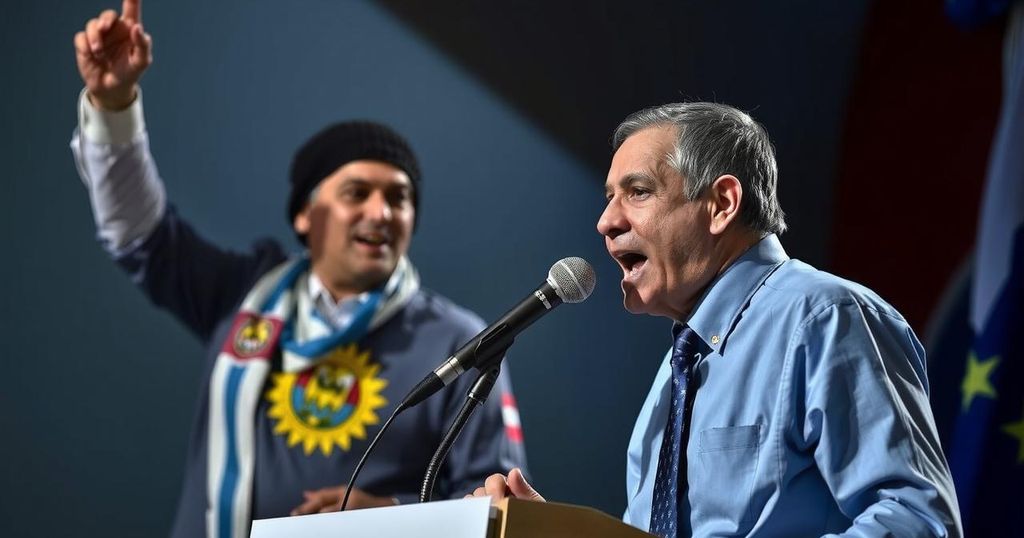Uruguay’s Conservative Party Concedes Election to Left-Wing Challenger
Uruguay’s ruling conservative coalition has conceded the presidential run-off to left-wing candidate Yamandu Orsi, marking an end to their short governance. Alvaro Delgado, the outgoing candidate, acknowledged Mr. Orsi’s victory with a call for collaboration. Mr. Orsi’s moderate policies, which include tax incentives and welfare reforms, reflect a continuation of popular Broad Front strategies, addressing pressing societal issues while ensuring stability in governance.
In a significant political shift for Uruguay, the ruling conservative coalition has conceded the presidential run-off to left-wing candidate Yamandu Orsi. Alvaro Delgado, the conservative candidate, addressed his supporters, expressing his support for Mr. Orsi, declaring, “with sadness, but without guilt, we can congratulate the winner.” With over 57% of the votes counted, Mr. Orsi of the Broad Front is poised to lead the nation, marking the end of a brief conservative administration following the election of Luis Lacalle Pou in 2020.
During their tenure, the Broad Front received international recognition for progressive legislation, including the legalization of abortion, same-sex marriage, and marijuana sales. In a demonstration of political civility, outgoing president Lacalle Pou praised Mr. Orsi via social media, asserting his commitment to a smooth transition. The election saw a voter turnout of 89.4%, consistent with prior rounds, as carefully monitored quick counts indicated Mr. Orsi leading with approximately 49% of the vote, versus Mr. Delgado’s 46%. This electoral outcome resonates within a larger context of global shifts away from incumbency in the face of economic dissatisfaction post-pandemic.
Mr. Orsi’s approach, however, is characterized by moderation; he plans no drastic overhauls but aims to continue policies fostering economic growth alongside welfare programs. With proposals for tax incentives and adjustments to retirement regulations, he is addressing the desires of the populace without alienating the fiscal conservatism some constituents support. As such, he seeks to balance investment with social security reforms amidst a climate of cautious optimism.
The recent presidential run-off in Uruguay marked a pivotal moment in the nation’s political landscape. The broader context of this election includes a wave of dissatisfaction with incumbent regimes driven by economic challenges faced globally post-pandemic. Uruguay, known for its relatively progressive policies under the Broad Front administration, has seen a reversal of fortunes in government could signal a change in political ideology reflecting the electorate’s current priorities.
The concession by Uruguay’s governing party to left-wing challenger Yamandu Orsi highlights a crucial political transition marked by the desire for change amid economic challenges. Mr. Orsi’s moderate stance, aiming for continuity rather than radical reforms, may reassess Uruguay’s socio-economic strategies, reinforcing the commitment seen previously under the Broad Front while addressing the pressing issues of poverty and crime. The upcoming administration thus prepares to navigate complex societal dynamics while embracing the electorate’s expectations.
Original Source: www.expressandstar.com




Post Comment